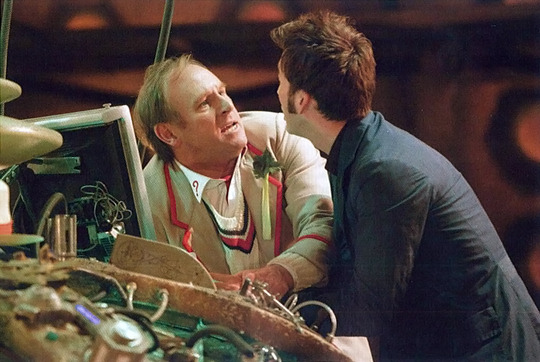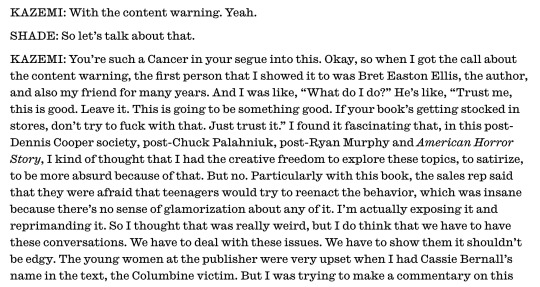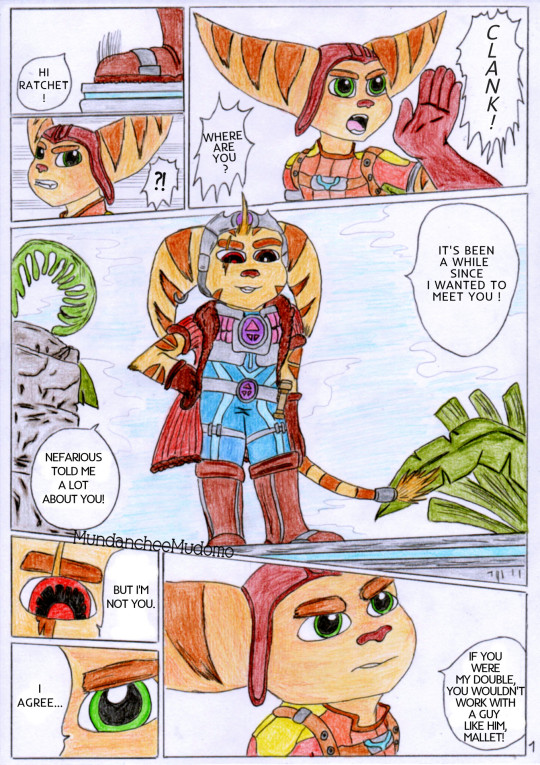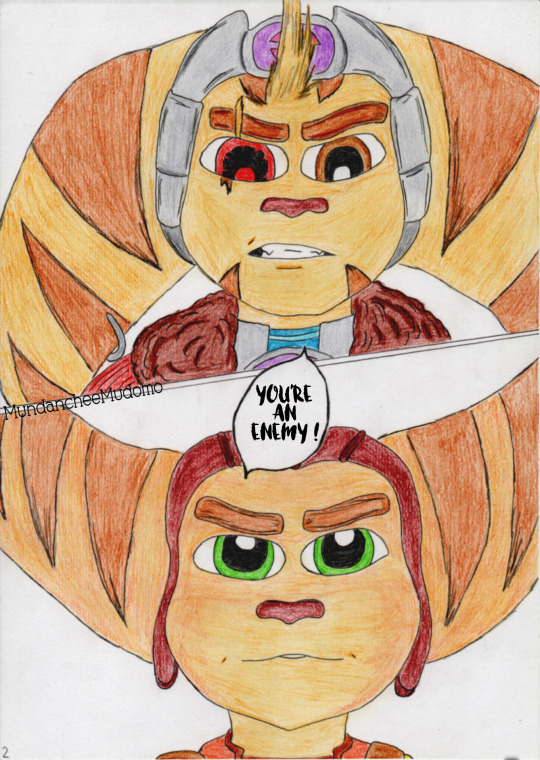#the indefatigable doctor
Text

a fallen london sideblog, following back from @abstractkind. grown adult, they/them, living canadian stereotype.
i do not know brevity. if you see me here, i am likely procrastinating on a task at work by overthinking fallen london lore or cheering for everyone's fl ocs.
i have four main characters/accounts. i accept calling cards and social actions on any of them!
The Intemperate Director (#the director) (almost an introduction)
The Silvered Assistant (#the silvered assistant) (almost an introduction)
The Heedless Novice (#the heedless novice)
The Indefatigable Doctor (#the indefatigable doctor)
someday i may even post proper introductions for them.
i have a memory like a sieve unless it's for deep lore and the adhd to boot, so i preemptively apologize for the all-or-nothing posting behaviors🙏
or basically:

#the director#the silvered assistant#the heedless novice#the indefatigable doctor#the webs we weave#others' tales#zee posting#playlist#apologies i needed a pinned post. figured almost two years after i started the blog is a good time for it lmao
6 notes
·
View notes
Text
By: Nickolaus Hines
Published: Oct 18, 2021
In 2016, the famous nun Mother Teresa was declared a saint by Pope Francis — but many people say she doesn't deserve it.
Ever since the Vatican made Mother Teresa a saint in 2016, the response has been controversial and polarizing.
In order for Mother Teresa to achieve sainthood, the Vatican had to recognize two miracles that the famous nun performed after her death. Pope John Paul II recognized the first miracle in 2003, just six years after she died in 1997. And Pope Francis recognized the second miracle in 2015.
The popes claimed that Mother Teresa performed miracles when she cured one woman and then one man of their respective tumors. However, these “miracles” have been disputed by some — especially since a doctor who worked on the woman’s case said that she had been treated with drugs.
But debates over Mother Teresa’s miracles didn’t dissuade the Vatican from moving forward with its plans. Pope Francis officially proclaimed Mother Teresa a saint on September 4, 2016. But the decision remains controversial, and the dispute over her miracles is just one small part of it.
Of course, Mother Teresa’s sainthood may seem well-deserved to some. After all, she cultivated a mostly sparkling reputation as a selfless humanitarian while she was alive. But in recent years, her image has lost its luster. And when you take a closer look at her story, it’s not hard to see why.
Inside Mother Teresa’s “Selfless” Intentions
Mother Teresa was intent on converting as many people to Catholicism as possible, even at the expense of the poor and sick.
No one builds a church purely for the love of God — especially in places like India where critical services, like hospitals, are lacking. Religious groups that erect churches in these areas do so not just out of the kindness of their hearts, but to increase the number of people who believe in their faith.
Like those missionaries, conversion — the Church’s key to survival — was Mother Teresa’s primary goal. And in the context of the Catholic Church, charity can be viewed as a self-interested act.
“It’s good to work for a cause with selfless intentions,” said Mohan Bhagwat, the head of a Hindu nationalist group. “But Mother Teresa’s work had ulterior motive, which was to convert the person who was being served to Christianity. In the name of service, religious conversions were made.”
And when The New York Times reviewed the British documentary Hell’s Angel, a film that highlighted some of Mother Teresa’s flaws, the paper concluded that she was “less interested in helping the poor than in using them as an indefatigable source of wretchedness on which to fuel the expansion of her fundamentalist Roman Catholic beliefs.”
Still, some argue that even if Mother Teresa had ulterior motives, at least the people she cared for were better off for it. But others who have actually visited and worked in her medical centers wholeheartedly disagree.
The Horrific Conditions At Mother Teresa’s Medical Centers And Missions
Though Mother Teresa’s medical centers were meant to heal people, her patients were often subjected to conditions that made them even sicker. In the same documentary, an Indian journalist compared Mother Teresa’s flagship location for “Missionaries of Charity” to photographs that he had seen of the Bergen-Belsen concentration camp in Nazi Germany.
“Workers washed needles under tap water and then reused them. Medicine and other vital items were stored for months on end, expiring and still applied sporadically to patients,” said Hemley Gonzalez, a noted humanitarian who briefly volunteered at Missionaries of Charity.
Gonzalez continued, “Volunteers with little or no training carried out dangerous work on patients with highly contagious cases of tuberculosis and other life-threatening illnesses. The individuals who operated the charity refused to accept and implement medical equipment and machinery that would have safely automated processes and saved lives.”
It wasn’t just volunteers who criticized Mother Teresa’s treatment of patients, either. In her hospice care centers, Mother Teresa practiced her belief that patients only needed to feel wanted and die at peace with God — not receive proper medical care — and medical experts went after her for it.
In 1994, the British medical journal The Lancet reported that medicine was scarce in her centers and that patients received nothing close to the treatment that they needed to relieve their pain.
Meanwhile, some doctors took to calling her missions “homes for the dying” since her Calcutta home for the sick had a mortality rate of more than 40 percent. But in her view, this wasn’t necessarily a bad thing.
In response to all the criticism, Mother Teresa allegedly said, “There is something beautiful in seeing the poor accept their lot, to suffer it like Christ’s Passion. The world gains much from their suffering.”
However, when it came to her own suffering, Mother Teresa apparently took a different stance. When she began experiencing severe heart problems, she received care in a modern American hospital.
The Questionable Company That Mother Teresa Kept Throughout Her Life
While neglecting the needs of the sick, Mother Teresa was also called out for rubbing elbows with several wealthy — and corrupt — world leaders.
This included Haitian dictator Jean-Claude Duvalier, who was eventually charged with crimes against humanity for his abuse of his fellow Haitians.
At one point, 60 Minutes released footage that showed Mother Teresa praising Duvalier’s wife Michele. In the footage, Mother Teresa said that she had “never seen the poor people being so familiar with their head of state as they were with her. It was a beautiful lesson for me.”
That wasn’t the only friendship that raised eyebrows. Mother Teresa also received $1.25 million from her friend Charles Keating.
Keating was one of the key figures behind the 1980s savings and loan crisis, brought about by housing market and loan speculation, which cost American taxpayers $124 billion. And while he was on trial, Mother Teresa wrote to the judge presiding over his case — seeking clemency for him.
“I do not know anything about Mr. Charles Keating’s work or his business or the matters you are dealing with,” she said. “I only know that he has always been kind and generous to God’s poor and always ready to help whenever there was a need. It is for this reason that I do not want to forget him now while he and his family are suffering.”
Though a co-prosecutor of Keating actually responded to Mother Teresa after his conviction — and pointed out that one of the people Keating stole from was a poor carpenter — he never got a response from her.
And that wasn’t the only issue related to Mother Teresa’s finances.
The Enduring Mystery Of Where Mother Teresa’s Money Went
Countless well-meaning Catholics gave money to Mother Teresa’s charitable organizations throughout the years, but many of them would never see their generous donations go toward good works.
Keating’s $1.25 million donation alone would seem large enough to lift all of those in her care out of poverty, but one volunteer said that “even when bread was over at the soup kitchens, none was bought unless donated.”
Once, after running up an $800 tab at a grocery store to feed people at her charity, Mother Teresa refused to get out of line until someone else paid.
A 1991 report in the German magazine Stern also estimated that only seven percent of the millions of dollars she received were used for charity.
But seven percent of what total figure, exactly? The world will never know. Nirmala Joshi, the leader of Missionaries of Charity who succeeded Mother Teresa, said the donations were “countless,” and there was only one person with the actual numbers. “God knows,” Joshi said. “He is our banker.”
One is left to wonder where all of that money was actually going — and what happened to it after Mother Teresa’s death.
Mother Teresa’s Views On Reproductive Rights
Though it’s not surprising that a Catholic nun would be against abortion, Mother Teresa still raised eyebrows when she discussed her stance while she was accepting the Nobel Peace Prize in 1979.
In reference to Bosnian women who had been raped by Serbs and who were seeking abortions for their unwanted pregnancies, Mother Teresa said, “I feel the greatest destroyer of peace today is abortion, because it is a direct war, a direct killing — direct murder by the mother herself.”
She also rallied against birth control, claiming that “natural family planning” would solve the woes of women who were not ready for a child.
What Mother Teresa did promote in the realm of family planning — like abstinence — didn’t help anyone, either. And despite abstinence-only education being proven ineffective, she still stuck by her claims.
But even though she gained some critics for views like these, Mother Teresa was mostly successful at avoiding controversy while she was alive. However, a glimpse of her “dark side” would slip through the cracks every so often — especially when it came to her infamous homes for the sick.
In hindsight, these issues are hard to ignore today. And it’s also difficult to understand why the Catholic Church decided to make Mother Teresa a saint. She may have been revered for helping the poor and the sick, but her practices ensured that they were mired in pain until their final moments.
==
Reminder: Mother Teresa was a sadistic fundamentalist.
#Nickolaus Hines#mother teresa#catholic church#catholic#religious fanatic#sadistic bitch#roman catholic#catholicism#fuck you mother teresa#fraud
57 notes
·
View notes
Text
the thing about house md that makes me insane is all doctors are bastards, all doctors are ableist, and dr. housemd himself specifically is INSANELY so, but particularly and specifically related to his own disability, which happened to him because his partner (inexplicably, or perhaps explicably due to the 2005ness of it all, a woman) made medical decisions for him EXPLICITLY against his wishes which left him crippled and with a painkiller addiction. and he's a mean and nasty man but he "forgives" her for this and for leaving him after the procedure. in that episode that reveals this.
BUT
the same episode that reveals this also reveals that he was already a nasty, unpleasant addict BEFORE his disability in ways that impacted his treatment (he was not diagnosed effectively because he was written off as drug-seeking, which he fully admits that he was) and this is like. never engaged with really (iirc. i am not an encyclopedic knower of housemd lore) like. he just has a moment in that episode where he says "drug addicts get sick too" and it just makes me want to CLAW MY SKIN OFF because YES! YES THEY DO! the way he navigates patient rights pinballs between his indefatigable knowledge that he is in fact usually right and that patients dont know what he knows, the patient's legal right to privacy and autonomy, and his occasional fling with actually sticking to medical ethics makes me literally INSANE!!! IT MAKES ME CRAZY
#wilson is frankly a worse offender than house is in this regard (med ethics) which is why i think wilson is sexy and house is just like.#my faggot uncle and we are going to fight with our canes at the thanksgiving table or whatever. you know.#housemd#okay.#this show is much more about disability than it is about how those old men have a weird gay thing going on but they also very much do
58 notes
·
View notes
Photo





Time Crash - Behind the Scenes - Part Seven
Excerpts from Benjamin Cook’s interview with Peter Davison and David Tennant in DWM #389:
DWM: Graeme Harper directed your final Doctor Who serial, Peter - and you, David, have worked with him on each of your three series. From the cast’s point of view, how much difference does an amazing director make?
Peter Davison: If you’ve got a bad director, you can put in as good a performance, but it won’t look as good. Graeme came along after a series of competent but very much old-school directors, and he was like a breath of fresh air, a burst of almost irrepressible enthusiasm, which kind of took us all along with it. I remember him doing things that... well, I was used to doing things in a particular way. I was thinking, it won’t work if you shoot it like that. And Graeme would go, “Nah, guv, it’ll look fantastic,” and of course it did
David Tennant: that’s the extraordinary thing about Graeme: his enthusiasm and his energy. I mean, he was a younger man 25 years ago, but I can’t imagine that he could have been any more enthusiastic! It would be just about impossible to keep him in the room if he were bouncing about any more. That’s why he’s so brilliant to work with. He’s indefatigable
Peter Davison: He does risk serious injury to himself in the course of directing, which is unusual, really. He risks getting run down by a camera! He’s one of Doctor Who’s best directors.
DWM: When you’re playing the Doctor, are you conscious of your legacy
David Tennant: Maybe I’m more aware of it because I’ve grown up with it, and I’ve grown up with it being a show that’s part of popular culture. I don’t know if it felt like that - if it felt like a national icon - 25 years ago in the way that it seems to be regarded now...?
Peter Davison: The series itself seemed like a national icon, but what’s hard to imagine now is that television was once two showings maybe, and that was it. You were lucky if you got a repeat, and then it was never seen again. There was no expectation of anyone ever owning a shelf of DVDs, because even videotape recorders weren’t widely around. Part of the appeal of doing a film was that you knew it’d still be repeated on BBC Two in 25 years’ time, but there was no longevity for television, I though.
Link to [ part one ] of the Time Crash Behind-the-scenes posts, or click the #whoBtsCrash tag, or the full episode list [ here ]
#david tennant#peter davison#doctor who#rtdedit#time crash#before they were related#a favorite doctor from my childhood#with my favorite doctor from my adulthood#makes me giddy#stuff i posted#whoBts#whoBtsCrash
87 notes
·
View notes
Text
"How—how can I get back my faith? But I only believed when I was a little child, mechanically, without thinking of anything. How, how is one to prove it? I have come now to lay my soul before you and to ask you about it. If I let this chance slip, no one all my life will answer me. How can I prove it? How can I convince myself? Oh, how unhappy I am! I stand and look about me and see that scarcely any one else cares; no one troubles his head about it, and I’m the only one who can’t stand it. It’s deadly—deadly!”
“No doubt. But there’s no proving it, though you can be convinced of it.”
“How?”
“By the experience of active love. Strive to love your neighbor actively and indefatigably. In as far as you advance in love you will grow surer of the reality of God and of the immortality of your soul. If you attain to perfect self‐forgetfulness in the love of your neighbor, then you will believe without doubt, and no doubt can possibly enter your soul. This has been tried. This is certain.”
“In active love? There’s another question—and such a question! You see, I so love humanity that—would you believe it?—I often dream of forsaking all that I have, leaving Lise, and becoming a sister of mercy. I close my eyes and think and dream, and at that moment I feel full of strength to overcome all obstacles. No wounds, no festering sores could at that moment frighten me. I would bind them up and wash them with my own hands. I would nurse the afflicted. I would be ready to kiss such wounds.”
“It is much, and well that your mind is full of such dreams and not others. Sometime, unawares, you may do a good deed in reality.”
“Yes. But could I endure such a life for long?” the lady went on fervently, almost frantically. “That’s the chief question—that’s my most agonizing question. I shut my eyes and ask myself, ‘Would you persevere long on that path? And if the patient whose wounds you are washing did not meet you with gratitude, but worried you with his whims, without valuing or remarking your charitable services, began abusing you and rudely commanding you, and complaining to the superior authorities of you (which often happens when people are in great suffering)—what then? Would you persevere in your love, or not?’ And do you know, I came with horror to the conclusion that, if anything could dissipate my love to humanity, it would be ingratitude. In short, I am a hired servant, I expect my payment at once—that is, praise, and the repayment of love with love. Otherwise I am incapable of loving any one.”
She was in a very paroxysm of self‐castigation, and, concluding, she looked with defiant resolution at the elder.
“It’s just the same story as a doctor once told me,” observed the elder. “He was a man getting on in years, and undoubtedly clever. He spoke as frankly as you, though in jest, in bitter jest. ‘I love humanity,’ he said, ‘but I wonder at myself. The more I love humanity in general, the less I love man in particular. In my dreams,’ he said, ‘I have often come to making enthusiastic schemes for the service of humanity, and perhaps I might actually have faced crucifixion if it had been suddenly necessary; and yet I am incapable of living in the same room with any one for two days together, as I know by experience. As soon as any one is near me, his personality disturbs my self‐complacency and restricts my freedom. In twenty‐four hours I begin to hate the best of men: one because he’s too long over his dinner; another because he has a cold and keeps on blowing his nose. I become hostile to people the moment they come close to me. But it has always happened that the more I detest men individually the more ardent becomes my love for humanity.’ ”
“But what’s to be done? What can one do in such a case? Must one despair?”
“No. It is enough that you are distressed at it. Do what you can, and it will be reckoned unto you. Much is done already in you since you can so deeply and sincerely know yourself. If you have been talking to me so sincerely, simply to gain approbation for your frankness, as you did from me just now, then of course you will not attain to anything in the achievement of real love; it will all get no further than dreams, and your whole life will slip away like a phantom. In that case you will naturally cease to think of the future life too, and will of yourself grow calmer after a fashion in the end.”
“You have crushed me! Only now, as you speak, I understand that I was really only seeking your approbation for my sincerity when I told you I could not endure ingratitude. You have revealed me to myself. You have seen through me and explained me to myself!”
“Are you speaking the truth? Well, now, after such a confession, I believe that you are sincere and good at heart. If you do not attain happiness, always remember that you are on the right road, and try not to leave it. Above all, avoid falsehood, every kind of falsehood, especially falseness to yourself. Watch over your own deceitfulness and look into it every hour, every minute. Avoid being scornful, both to others and to yourself. What seems to you bad within you will grow purer from the very fact of your observing it in yourself. Avoid fear, too, though fear is only the consequence of every sort of falsehood. Never be frightened at your own faint‐heartedness in attaining love. Don’t be frightened overmuch even at your evil actions. I am sorry I can say nothing more consoling to you, for love in action is a harsh and dreadful thing compared with love in dreams. Love in dreams is greedy for immediate action, rapidly performed and in the sight of all. Men will even give their lives if only the ordeal does not last long but is soon over, with all looking on and applauding as though on the stage. But active love is labor and fortitude, and for some people too, perhaps, a complete science.
3 notes
·
View notes
Text

The heart, that indefatigable organ, pumps 100,000 times daily to keep us alive. In terms of comprehending its complexities, echocardiography takes the lead. This extensively recommended non-invasive cardiac diagnostic test offers priceless information about the heart’s composition, operation, and general health. If your doctor has prescribed you an Echocardiogram Test Pimlico, visit North Queensland Cardiac Clinic in Pimlico, Australia, today.
#Echocardiogram Test Pimlico#Echocardiogram Centre Near Me#Best Echocardiogram Centre Near Me#NQCC#Dr Dharmesh Anand#Dr Raibhan Yadav#Pimlico#Australia
0 notes
Text


Five years ago, when "cancel culture" was at its height and books were being pulled from publication schedules due to social-media outrage campaigns, I proposed that publishers turn the controversies to their advantage using the old "Banned in Boston" technique.
This phrase refers to olden times, when the puritanical authorities in Boston were always proscribing material they found objectionable. (According to Wikipedia, they literally banned the Decameron. It's admittedly a pretty filthy book, but, as it's been in print since the 14th century, since before print, the Bostonians were a little late to the bonfire.) Publishers began to hope their products would be "Banned in Boston" since it promised to the public that their contents would be satisfyingly salacious.
And now we see a small-press book—with an extraordinarily ubiquitous publicity campaign; this guy's everywhere from Interview and Vanity Fair to the dissident-right culture podcasts—being marketed with "they forced me to have a content warning" and "the woke girls in the office almost staged a walkout." "Banned in Canada" would be a good selling point, too, though "Euthanized in Canada" might even be better: "My book's so dangerous, the doctor asked me if I'd ever considered MAiD!" Anyway, good to see that publishers and publicists have caught on at last. I wonder whether the book's any good...
(If Alex's indefatigable publicist is reading this, my email's in my bio in case you want to send me a review copy. Or in case you want to be my publicist, in the event that I can afford your services. I almost said "unlikely event," but Alex is a manifestor and would no doubt object to such a "limiting belief.")
1 note
·
View note
Text
About Me
The name's Genesis! I use any pronouns, including neopronouns. The only ones I ask you not to refer to me with is She/Her. I am an adult! Exact age not specified for privacy reasons. I'm a recent arrival to the Sunless universe but I love the lore, I'm a writer and an okay artist (though I get better every day). Currently I'm mid-ambition and pre-railway on my main FL account.
You can send calling cards my way via Gem Stone (@/distortedgenesis)! I'm always happy to have friends over there!
I may occasionally reblog spicier content.
TAG LIST
#my writing and #my art for content I post that is, well, mine
#other peoples blorbos is for content from other blogs featuring their characters
I'll tag nsfw content as #nsft and mark it as mature.
#genesis rambles for screaming into the void and/or shitposting
OTHER INFORMATION
Check out my sideblog where I reblog silly little aesthetic stuff for my blorbos @ifallshallbewell
CHARACTERS
FALLEN LONDON
Dr. Gem Stone [The Abberant Doctor]: My Light Fingers PC. Slowcakes Page.
Detective Peculiar [The Indefatigable Detective]: My Nemesis PC. Slowcake's Page.
Liz O'Connor [The Impetous Monsterhunter]: My Bag a Legend PC. Slowcake's Page.
Lady Spring Lovelace [The Ambitious Showman]: My Heart's Desire PC. Slowcake's Page.
Kendrick Starlee [The Resilient Railwoman]: Engineer for the GHBR. Long-suffering acquaintance of the most involved people in London.
Ellison Arrow. [The Consumed Polymath]: A Red Scientist, Liberationist, and perpetual thorn in the University's side (and budget). Slowcake's Page.
Samuel "Wells" Arrow [The Overzealous Voyager]: An unusual man made from a failed experiment in Parabola.
Captain Bell: A ship-captain and Ellison's best friend. Also my Sunless Skies captain.
Sophronia Meadows [The Perfervid Probationer/The Impassioned Monsterbreeder]: A grad student working in Ellison's lab, and an expert in the art of cryptozoological cons
ervation.
Deidamia [The Iniquitous Deviless]: Peculiar's partner and a player of the Great Game.
Mr. Watson Sterling: Dr. Stone's ex-husband.
Ives Walters [The Sepulchral Accountant]: The Great Hellbound Railway Board's Accountant.
Woefully Ironic [The Insufferable Playwright]: My SMEN PC and Failed Heart's Desire PC.
THE SUNLESS SKIES
Crew Details- WIP, link will be here soon.
Work Directory [Does Not Include my NSFW content]
Into the Neath | A brief introduction to my main characters and their backstories prior to the start of the ambition storylines.
Staring At The Moon | The beginnings of Light Fingers, following my PC Dr. Stone.
Momento Mori Leaves A Debt | The beginnings of Nemesis, following my PC Detective Peculiar.
Absinthe Makes The Heart Grow Fonder | The beginnings of Bag A Legend, following my PC Liz(ard) O'Connor.
If You Wanna Roll, Heads Are Gonna Roll | The beginnings of Heart's Desire, following my PC Lady Spring Lovelace.
Bad Dreams, Bad Things | Part 2 of my Light Fingers Retelling
The Game Plays Us For Fools | Part 2 of my Nemesis retelling
Are You A Man or A Monster? | Part 2 of my BAL retelling
All I Ever Wanted Was The World | Part 2 of my HD retelling
Let's See How Far We've Come | Part 3 of my LF retelling.
Inscribed | An Epistolary fic following Oliver Bergamot, one of my Mask of the Rose ocs. 11 chapters, completed.
A Foolproof Guide To Impersonating A Master | A BAL fic following Liz's attempt to impersonate Mr. Veils.
0 notes
Text



Maintaining healthy habits is crucial for overall health and well-being, however it's particularly vital for the health of our hearts. Our heart is important organ that employment indefatigably each day to pump blood and gas throughout our bodies. Taking care of our hearts is important for a protracted and healthy life.
Here are some straightforward and effective ways in which to take care of a healthy heart through healthy habits:
Exercise regularly: Exercise is crucial for maintaining a healthy heart. It helps to strengthen the guts muscles, lower vital sign, and scale backthe chance of heart condition. Aim for a minimum ofhalf-hour of moderate-intensity exercise, like brisk walking or athletics, every day.
Eat a healthy diet: A healthy diet is important for a healthy heart target. Consumption many fruits, vegetables, whole grains, and lean super molecule sources. Avoid processed and high-fat foods, as they'll increase your risk of heart condition.
Quit smoking: Smoking could be a major explanation for heart condition and stroke. If you smoke, quitting is one among the most effective stuff you will do for your heart health. talk over with your doctor or a smoking stop specialist for facilitate and support.
Limit alcohol consumption: Moderate alcohol consumption might have some wholesomeadvantages, however excessive alcohol consumption will increase your risk of heart condition. Limit your intake to at least one drink per day for ladies and 2 drinks per day for men.
Get enough sleep: Adequate sleep is very important for overall health and mightfacilitateto cut backthe chance of heart condition. Aim for seven to eight hours of sleep per night.
By incorporating these healthy habits into your daily routine, you'll be able to watch out of your heart and improve your overall health. do not wait till it's too late to start out taking care of your heart. begin active these healthy habits now a day sand luxuriate in a life of fine heart health.
#fitness#healthy diet#helathylifestyle#healthy eating#healthy recipes#nutrition#nutritious#motivation#motivational quotes#workout#fitnessjourney#ketoweightloss#healthcare
0 notes
Text
Jinxed jesting jejune junior jobber...
just jabbering gibberish (A - J)
Again, another awkward ambitious
arduous attempt at alphabetically
arranging atrociously ambiguously
absolutely asinine avoidable alliteration.
Because...? Basically bonafide belching,
bobbing, bumbling, bohemian beastie boy,
bereft bummer, bleeds blasé blues, begetting
bloviated boilerplate bildungsroman,
boasting bougainvillea background.
Civil, clever clover chomping, cheap
chipper cool cutthroat clueless clodhopper,
chafed centenary, codifies communication
cryptically, challenging capable, certifiably
cheerful college coed.
Divine dapper daredevil, deft, destitute,
doddering, dorky dude, dummkopf Dagwood
descendent, dagnabbit, demands daring
dedicated doodling, dubious, dynamite,
deaf dwarf, diehard doppelganger, Doctor
Demento double, declaring depraved
daffy dis(pense)able dufus Donald Duck
derailed democracy devastatingly defunct.
Eccentric, edified English exile,
effervescent, elementary, echinoderm
eating egghead, Earthling, excretes,
etches, ejaculates, effortless exceptional
emphatic effluvium enraging eminent,
eschatologically entranced, elongated
elasmobranchii, emerald eyed Ebenezer,
effectively experiments, emulates epochal
eczema epidemic, elevating, escalating,
exaggerating enmity, enduring exhausting
emphysema.
Freed fentanyl fueled, fickle figurative
flippant fiddler, fiendishly filmy, fishy,
fluke, flamboyantly frivolous, fictitious,
felonious, fallacious, fabulously fatalistic,
flabbergasted, fettered, flustered, facile,
faceless, feckless, financially forked,
foregone, forlorn futile fulsome, freckled
feverish, foo fighting, faulty, freezing,
fleeting famously failing forecaster, flubs
"FAKE" fundamental fibber fiat, fabricating
fiery fissile fractured fios faculties.
Gamesomeness goads gawky, gingerly,
goofily graceful, grandiloquent gent, gallant,
genteel, geico, guppy gecko, gabbling gaffes,
gagging, gamboling, gestating, gesticulating,
garlic, gnashing, gobbling, gyrating,
gruesomely grinning, grappling, gnomadic
giggly, grubby, gastrointestinally grumpy
gewgaw gazing gesticulating guy,
geographically generically germane,
gungho, grave gremlin, grumbling, guiding,
guaranteeing, guerilla gripped gatling guns
ginning gumpshun.
Hello! Herewith halfway harmless hazmat,
haphazard haggard, hectored, hastily,
hurriedly, harriedly hammered, handsomely
hackneyed, heathen, hellbent hillbilly, hirsute,
hidden hippie, huffy humanoid, hexed, heady,
Hellenistic, holistic, hermetic, hedonistic
heterosexual Homo sapiens historical heirloom,
homeless, hopeful, holy, hee haw heretical hobo.
Indefatigable, iconographic, iconic, idealistic,
idyllic, inimitable, idiosyncratic, ineffable,
irreverently issuing idiotic, indifferent, inert,
ineffectual, ingeniously iniquitous, immaterial,
insignificant, indubitable, inexplicable, ignoble
itches, ineffectually illustriously illuminating
immovable infused ichthyosaurus implanted
inside igneous intrusions immensely
imperturbable improbable.
Jovial jabbering jinxed January jokester
just jimmying jabberwocky
justifying jangling jarring juvenile jibberish
jubilantly jousting jittering
jazzy jawbreaking jumble
justifying, jostling, Jesus;
junior jowly janissary joyful Jekyll
joined jumbo Jewess jolly Jane;
jammed jello junket jiggled
jeopardized jingled jugs.
0 notes
Note
2, 10, 12, 25!
Ask game time!
2. How loosely or strictly do they use the word ‘friend’?
Maybe this is just me, but have you ever met that person that says your name regularly in conversation, or uses endearments, or finds small chances for respectful physical touch (a pat on the shoulder, back, etc) and somehow makes you feel incredibly seen, heard, or like the center of the world when you talk to them?
That's the Director. Specc'd fully into emotional/social intelligence and uses it entirely to get away with being a menace or to find things that annoy their acquaintances.
Joking aside, networking is their livelihood, and they use 'friend' fairly freely (and sometimes pointedly). They "know a guy", they "have a friend in that business", they "would be willing to help a friend out".
The Silvered Assistant, meanwhile, is the exact opposite, and reacts to calling someone a friend the same way someone else might receiving a heartfelt confession.
10. What fact do they excitedly tell everyone about at every opportunity?
Oh boy. While it doesn't really count as a fact, The Silvered Assistant, when not working for the Director or attending to her business as an Oneirotect, is a researcher and adjunct professor at the University for Glasswork Studies. She tempers her excitement and interest around most folk out of habit, but has a hard time containing herself if the subject of advanced applications comes up. If in the presence of other academics or experts in the field, she will launch into a dissemination of glasswork applied to their field, the application of palindromes in Red Science, anything she's been working on recently. The Stalwart Scholar receives most of this enthusiasm.
The Indefatigable Doctor loves to bring up that one of their rubbery companions overdosed when partaking in amber. Opposite of a fun fact. They'll often have a medical fact pertaining to the limits of the body to share as well. It's best they don't talk.
12. What’s something that makes them laugh every single time? Be specific!
The Heedless Novice loves when people try to come at her or her reputation only to fail miserably, or to fall into a pit of blackmail and politics. There's a reason why she fixated so strongly on the Bishop of St Fiacres after their round in the Marvellous– the moment he started to realize what she did to him was, in essence, pure delight for her.
The Director laughs easily, but you can guarantee a genuine smile from them by: riling up the Bishop of Southwark (particularly embarrassment or harmless things that get him heated); catching the Stalwart Scholar off guard or managing to give him a good case of fuckor; or teasing their newest victim, the naive himbo Uranist Sybarite. That said, all of the above need to be in good humour.

(He's so easy to tease.)
25. What subject / topic do they know a lot about that’s completely useless to the direct plot?
The Director: Very dependent on what you'd consider useless. They tend not to get into things excessively unless it's for a purpose, and there's a whole lot of things they've researched that might seem entirely inane to a bystander, while actually building a very specific identity in the Cabinet Noir.
If asked however, they'd likely insist any in-depth knowledge they have regarding Christianity and the workings of the Anglican clergy to be useless and learned largely against their will. The Bishop of Southwark would probably burst a blood vessel to hear his envoy say it.
The Heedless Novice is, unsurprisingly, rather versed in all things ecclesiastical, but particularly the politics of Anglican circles on the surface, as well as the workings and broader politics of other Christian denominations. With how often the scripture is adapted and interpreted in the Neath to account for their... unique situation, however, she rarely has to rely on this expertise in order to perform her work as a Crooked Cross. Memorization and recitation does not serve her purposes as well as mithridacy or being underestimated would; she finds being adaptable and personalizing the methodology to the listener goes much further. She still keeps up with the politics for fun, however.
The Silvered Assistant doesn't have a remarkable singing voice, but does know quite a few sea shanties, urchin chants, and drownie songs, as well as how to emulate the warbling of the latter. She's also by osmosis quite knowledgeable about the trends, artists, and art forms of all the popular artistic movements in London.
#ask games#thank you for the ask! hopefully i covered what you were curious about.#the director#the heedless novice#the silvered assistant#the indefatigable doctor
3 notes
·
View notes
Photo

St Hyacinth OP (1185-1257) – (born Jacek Odrowąż) “Apostle of Poland” & “Apostle of the North” also known as “the Polish St Dominic”– Religious Priest, Confessor, Doctor of Law & Divinity, Missionary, Preacher, Miracle Worker, Mystic b. 1185 at Lanka Castle, Kamien Slaski, Opole, Upper Silesia (in modern Poland) – d. 15 August 1257 at Krakow, Poland of natural causes. His major relics are in Paris, France. He was Canonized on 17 April 1594 by Pope Clement VIII. Attributes – a statue of the Blessed Virgin Mary; Monstrance or Ciborium. Called the “Apostle of Poland” and the “Apostle of the North”, Hyacinth was the son of Eustachius Konski of the noble family of Odrowąż. While in Rome, he witnessed a miracle performed by Saint Dominic & became a Dominican friar, along with the Blessed Ceslaus (a relative) & 2 attendants of the Bishop of Kraków – Herman, & Henry. After an abbreviated novitiate, Hyacinth & his companions received the religious habit of the Order from St Dominic himself in 1220. The young friars were then sent back to their homeland to establish the Dominican Order in Poland & Kyiv. As Hyacinth & his 3 companions traveled back to Kraków, he set up new monasteries with his companions as superiors, until finally, he was the only one left to continue on to Kraków, where he founded two houses. It was at the request of this indefatigable missionary that Saint Thomas Aquinas wrote his famous philosophical Summa contra Gentiles, proving the reasonableness of the Faith on behalf of those unfamiliar with doctrine. While Saint Hyacinth was at Kiev the Tartars sacked the town but it was only as he finished Mass that he heard of the danger. Without waiting to unvest, he took the ciborium in his hands & was leaving the church. Then occurred the most famous of his countless prodigies. As he passed by a statue of Mary a voice said: “Hyacinth, My son, why do you leave Me behind? Take Me with you…” The statue was of heavy alabaster but when Hyacinth took it in his arms it was light as a reed. With the Blessed Sacrament & the statue, he walked to the Dnieper river & crossed dry-shod over the surface of the waters to the far bank. https://www.instagram.com/p/ChWoxZgu71w/?igshid=NGJjMDIxMWI=
0 notes
Text

DARK SIDE OF MOTHER TERESA
In 2016, the famous nun Mother Teresa was declared a saint by Pope Francis
In order for Mother Teresa to achieve sainthood, the Vatican had to recognize two miracles that the famous nun performed after her death. Pope John Paul II recognized the first miracle in 2003, just six years after she died in 1997. And Pope Francis recognized the second miracle in 2015.
The popes claimed that Mother Teresa performed miracles when she cured one woman and then one man of their respective tumors. However, these “miracles” have been disputed by some — especially since a doctor who worked on the woman’s case said that she had been treated with drugs.
But debates over Mother Teresa’s miracles didn’t dissuade the Vatican from moving forward with its plans. Pope Francis officially proclaimed Mother Teresa a saint on September 4, 2016. But the decision remains controversial, and the dispute over her miracles is just one small part of it.
Of course, Mother Teresa’s sainthood may seem well-deserved to some. After all, she cultivated a mostly sparkling reputation as a selfless humanitarian while she was alive. But in recent years, her image has lost its luster. And when you take a closer look at her story, it’s not hard to see why.
Mother Teresa was intent on converting as many people to Catholicism as possible, even at the expense of the poor and sick.
No one builds a church purely for the love of God — especially in places like India where critical services, like hospitals, are lacking. Religious groups that erect churches in these areas do so not just out of the kindness of their hearts, but to increase the number of people who believe in their faith.
Like those missionaries, conversion — the Church’s key to survival — was Mother Teresa’s primary goal. And in the context of the Catholic Church, charity can be viewed as a self-interested act.
“It’s good to work for a cause with selfless intentions,” said Mohan Bhagwat, the head of a Hindu nationalist group. “But Mother Teresa’s work had ulterior motive, which was to convert the person who was being served to Christianity. In the name of service, religious conversions were made.”
And when The New York Times reviewed the British documentary Hell’s Angel, a film that highlighted some of Mother Teresa’s flaws, the paper concluded that she was “less interested in helping the poor than in using them as an indefatigable source of wretchedness on which to fuel the expansion of her fundamentalist Roman Catholic beliefs.”Still, some argue that even if Mother Teresa had ulterior motives, at least the people she cared for were better off for it. But others who have actually visited and worked in her medical centers wholeheartedly disagree
Though Mother Teresa’s medical centers were meant to heal people, her patients were often subjected to conditions that made them even sicker. In the same documentary, an Indian journalist compared Mother Teresa’s flagship location for “Missionaries of Charity” to photographs that he had seen of the Bergen-Belsen concentration camp in Nazi Germany.
Workers washed needles under tap water and then reused them. Medicine and other vital items were stored for months on end, expiring and still applied sporadically to patients,” said Hemley Gonzalez, a noted humanitarian who briefly volunteered at Missionaries of Charity.
Gonzalez continued, “Volunteers with little or no training carried out dangerous work on patients with highly contagious cases of tuberculosis and other life-threatening illnesses. The individuals who operated the charity refused to accept and implement medical equipment and machinery that would have safely automated processes and saved lives. t wasn’t just volunteers who criticized Mother Teresa’s treatment of patients, either. In her hospice care centers, Mother Teresa practiced her belief that patients only needed to feel wanted and die at peace with God — not receive proper medical care — and medical experts went after her for it.
In 1994, the British medical journal The Lancet reported that medicine was scarce in her centers and that patients received nothing close to the treatment that they needed to relieve their pain.
Meanwhile, some doctors took to calling her missions “homes for the dying” since her Calcutta home for the sick had a mortality rate of more than 40 percent. But in her view, this wasn’t necessarily a bad thing.
In response to all the criticism, Mother Teresa allegedly said, “There is something beautiful in seeing the poor accept their lot, to suffer it like Christ’s Passion. The world gains much from their suffering .However, when it came to her own suffering, Mother Teresa apparently took a different stance. When she began experiencing severe heart problems, she received care in a modern American hospital.
While neglecting the needs of the sick, Mother Teresa was also called out for rubbing elbows with several wealthy — and corrupt — world leaders.
This included Haitian dictator Jean-Claude Duvalier, who was eventually charged with crimes against humanity for his abuse of his fellow Haitians.
At one point, 60 Minutes released footage that showed Mother Teresa praising Duvalier’s wife Michele. In the footage, Mother Teresa said that she had “never seen the poor people being so familiar with their head of state as they were with her. It was a beautiful lesson for me.”
That wasn’t the only friendship that raised eyebrows. Mother Teresa also received $1.25 billion from her friend Charles Keating.
Keating was one of the key figures behind the 1980s savings and loan crisis, brought about by housing market and loan speculation, which cost American taxpayers $124 billion. And while he was on trial, Mother Teresa wrote to the judge presiding over his case — seeking clemency for him.
“I do not know anything about Mr. Charles Keating’s work or his business or the matters you are dealing with,” she said. “I only know that he has always been kind and generous to God’s poor and always ready to help whenever there was a need. It is for this reason that I do not want to forget him now while he and his family are suffering.”
Though a co-prosecutor of Keating actually responded to Mother Teresa after his conviction — and pointed out that one of the people Keating stole from was a poor carpenter — he never got a response from her.
And that wasn’t the only issue related to Mother Teresa’s finances.Countless well-meaning Catholics gave money to Mother Teresa’s charitable organizations throughout the years, but many of them would never see their generous donations go toward good works.
Keating’s $1.25 million donation alone would seem large enough to lift all of those in her care out of poverty, but one volunteer said that “even when bread was over at the soup kitchens, none was bought unless donated.”
nce, after running up an $800 tab at a grocery store to feed people at her charity, Mother Teresa refused to get out of line until someone else paid.
A 1991 report in the German magazine Stern also estimated that only seven percent of the millions of dollars she received were used for charity.
But seven percent of what total figure, exactly? The world will never know. Nirmala Joshi, the leader of Missionaries of Charity who succeeded Mother Teresa, said the donations were “countless,” and there was only one person with the actual numbers. “God knows,” Joshi said. “He is our banker.
#mother teresa#these haunted hills#ghostcore#ghost and hauntings#haunted#ghost and spirits#haunting#real ghost photos#ghost
29 notes
·
View notes
Text
Attack of the Rise of the Revenge of the Scheme of Doctor Draconic
Jenny Everywhere burst through the door to the rooftop. Ahead of her, there was a roughly disc-shaped hovercraft, piloted by a masked woman in a red and purple villain costume. Armed quadcopter drones filled the night sky.
The villainess stood up. "We meet at last, Shifter!" she growled. "But you're too late — my army of UAV drones is complete! All I need to do is activate them, and the world will fall under the control of the indefatigable super-scientist ..." She struck a disco pose with one hand pointing skyward. "... Doctor Draconic!"
Jenny stared, her heart pounding in her chest. Oh crap, it was her.
Well ... okay, this wasn't remotely the only universe where the two of them were enemies. But ... "Can't believe I kissed you, Laura," she muttered under her breath. Aloud, she said, "Well, first of all, that's a nice Saturday Night Fever pose!"
"Hah. You can —" Doctor Draconic did a double-take. "Wait," she said in an almost conversational voice. "What did you just say?"
Jenny furrowed her brow. "Uhhh, 'nice Saturday Night Fever pose'?"
"No, no, before that," said Doctor Draconic. "What did you call me."
Oh. Jenny found herself smirking. "Your name, Laura."
"Oh flipping Christmas —" Laura flailed. "You figured it out!?"
Jenny grinned, leaning against the rooftop door with her arms crossed. "You aren't exactly disguising your voice, Laur," she said. "Plus, turning 'Drake' into 'Draconic'? Not exactly subtle."
"Oh," said Laura. "Uhhh ... hmm ..."
"What's up?" said Jenny.
"... There goes that kind of reveal," Laura grumbled, half to herself. "Being un-subtle was supposed to be the point of ... I mean ..." She shook her head awkwardly. "Y'know what forget it."
"What do you mean, 'supposed to be the point'?" said Jenny, stepping away from the door.
Laura couldn't meet Jenny's gaze. "I said forget it!"
"Hang on," said Jenny. She knew how this version of Laura thought, both as a civilian and as a villain. "Are you telling me that you thought I genuinely wouldn't make the connection ... and you wanted to do, what, some kind of whole 'reveal' routine where you taunted me or whatever with the fact that the name thing was obvious?"
The indefatigable super-scientist Doctor Draconic sputtered incoherently. "D ... bu ... th ... just get over here and thwart me, Shifter!"
Jenny smiled, and practically danced forward. "I'm comin', I'm comin'!"
—
I created this story mostly to introduce the concept of "Doctor Draconic" as a "Doc Ock" kind of villain-name for Laura. There are no real fixed details about Doctor Draconic (notwithstanding the details which are fixed about Laura to begin with), except that she's unquestionably an antagonist to Jenny's heroics, and that "Laura Drake" is a civilian identity which she tries to keep secret. This particular interpretation is sort of like Doctor Eggman from Sonic the Hedgehog; I think they must've started dating before Jenny started thwarting, and you just know that when Laura figured out that it was Jenny who was fighting against her, she had exactly the same kind of brief internal freakout that Jenny did at the beginning. I kind of feel like, when Laura's being the bad guy, Jenny's going to have to be the voice of reason/"straight man"-even-though-she's-neither to Laura's antics.
The characters of Jenny Everywhere and Laura Drake / Doctor Draconic are available for use by anyone, with only one condition. This paragraph must be included in any publication involving these characters, in order that others may use these properties as they wish. All rights reversed.

Creative Commons 0: To the extent possible under law, Delilah H. Smith has waived all copyright and related or neighboring rights to Attack of the Rise of the Revenge of the Scheme of Doctor Draconic. This work is published from: United States.
#jenny everywhere#laura drake#doctor draconic#wlw#my stuff#my writing#public domain characters#microfiction#ish#violence mention
13 notes
·
View notes
Text

The heart, that indefatigable organ, pumps 100,000 times daily to keep us alive. In terms of comprehending its complexities, echocardiography takes the lead. This extensively recommended non-invasive cardiac diagnostic test offers priceless information about the heart’s composition, operation, and general health. If your doctor has prescribed you an Echocardiogram Test Pimlico, visit North Queensland Cardiac Clinic in Pimlico, Australia, today.
#Echocardiogram Test Pimlico#Echocardiogram Centre Near Me#Best Echocardiogram Centre Near Me#NQCC#Dr Dharmesh Anand#Dr Raibhan Yadav#Pimlico#Australia
0 notes
Text


Rift Apart AU: Carried away to another dimension, Ratchet and Clank will have to face two enemies, the indefatigable Doctor Nefarious, who will join forces with a being who sows panic in the galaxy, a Lombax named Mallet. A Lombax who has a rather disturbing resemblance to our hero ... While traveling a planet, Ratchet will learn several things about Mallet, but his priority remains to find Clank! (Japanese reading system)
Mallet don't belongs me, it's a character imagined by @assassyart ! Big, big thanks to her to allowed me to draw him <3
It was the first time that I drew a comics. It amused me as much as it exhausted me x)
Tape "my drawings" on my tumblr to see all my fanarts !
Next page (coming soon)
#ratchet and clank#ratchet and clank rift apart#ratchet and clank comics#mallet the lombax#assassyart#my drawings
20 notes
·
View notes